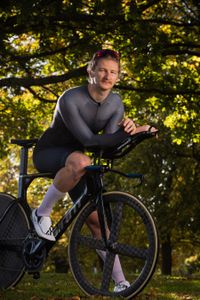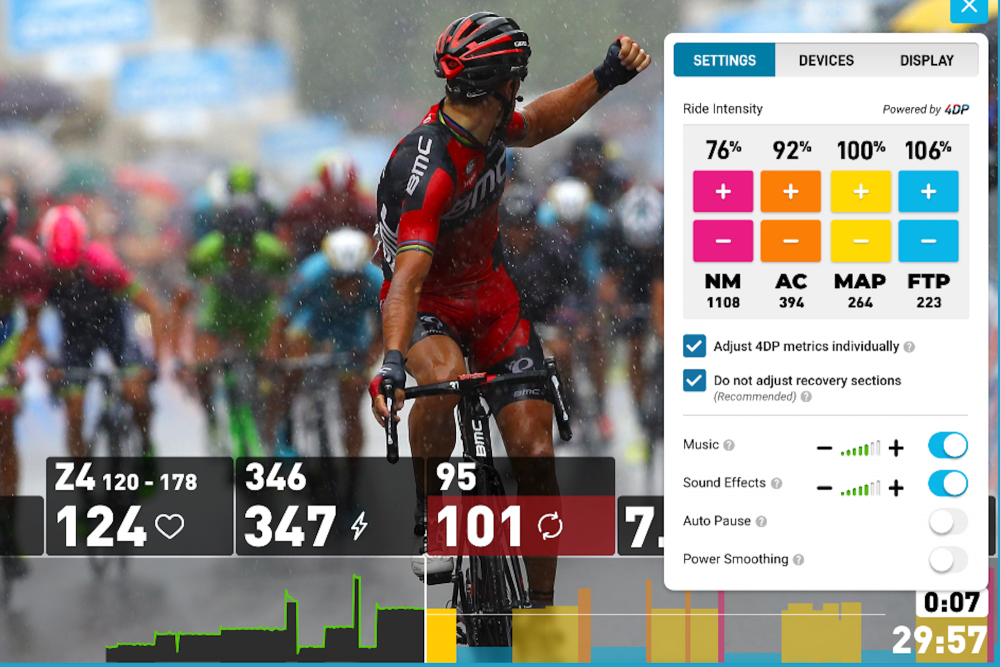The Sufferfest unveils new workout described as ‘the future of indoor cycling tests’
The Half Monty, set to be officially released next week, is easier than the conventional FTP test


The Sufferfest has unveiled its new fitness test, described as “the future of indoor cycling tests.”
Indoor training app The Sufferfest, Wahoo’s fitness and training wing, is currently testing the Half Monty, a take on the familiar ramp test often used for measuring a rider’s functional threshold power (FTP).
The ramp test is a popular alternative to the conventional 20-minute FTP test because it doesn’t require the same intense effort or tapering to get accurate results.
According to The Sufferfest, the Half Monty is a revolutionary new version of the ramp test, which will give you three fitness benchmarks – the FTP, maximal aerobic power (MAP), and lactate threshold heart rate (LTHR).
The Sufferfest also offers their own unique comprehensive fitness test, the Full Frontal, which is a brutal series of exercises to give you measurements for all four key power groups - neuromuscular power, anaerobic capacity, maximal aerobic power and FTP.
Head of science at The Sufferfest, Neal Henderson, explained how the Full Frontal and the Half Monty differ: “Full Frontal is definitely the more challenging test of the two, and yields a complete rider profile. For novice riders, or for individuals who have not performed much prior testing, we often see pacing issues impact the reliability of Full Frontal Tests.
“Half Monty reduces the demand of properly pacing in order to get accurate and reliable information.”
The latest race content, interviews, features, reviews and expert buying guides, direct to your inbox!
A conventional ramp test involves riding at a set power for regular intervals, which steadily increase by 20 watts every minute until the rider can’t turn the pedals any more, with the FTP estimate being taken from the maximum one minute power.
Testing only takes 10 to 20 minutes, with around four to eight minutes of intense effort, compared with the 45-minute duration of an FTP test, which includes a 20-minute full gas effort.
This means ramp tests are far less demanding on the rider and can ft into the middle of a training programme more comfortably.
The Half Monty, which lasts 57 minutes in total, consists of two sections – a ramp effort to failure, which will determine the max aerobic power; and a 20-minute long heart-rate constrained section, where a rider has to keep their heart-rate within a certain zone.
Cycling YouTuber and coach Cam Nicholls called the test "the future of indoor cycling tests".
According to The Sufferfest the new test offers more insight than the conventional ramp test, which only estimate FTP, it is more accurate, and is more adaptive as the app monitors your performance and offers on-screen prompted to update you on your progress.
>>> Indoor cycling clothing to keep you going nowhere in comfort
Henderson, who coaches world time trial champion Rohan Dennis, added: “In many cases, I would suggest first performing Half Monty to get a starting value for FTP and MAP, and LTHR and then test Full Frontal after training for a few weeks with Half Monty derived values for most folks. Then, after Full Frontal you can assess your improvements using Half Monty after four, six or eight weeks or so and update your FTP and MAP values. We generally don't recommend performing Full Frontal Testing any more frequently than once every 12 weeks, but we know that people can improve significantly within that time frame, and therefore Half Monty can be used to keep your training values more accurate between Full Frontal tests."
The test is currently available on The Sufferfest app as a beta, with the official launch happening on April 20.
Alex Ballinger is editor of BikeBiz magazine, the leading publication for the UK cycle industry, and is the former digital news editor for CyclingWeekly.com. After gaining experience in local newsrooms, national newspapers and in digital journalism, Alex found his calling in cycling, first as a reporter, then as news editor responsible for Cycling Weekly's online news output, and now as the editor of BikeBiz. Since pro cycling first captured his heart during the 2010 Tour de France (specifically the Contador-Schleck battle) Alex covered three Tours de France, multiple editions of the Tour of Britain, and the World Championships, while both writing and video presenting for Cycling Weekly. He also specialises in fitness writing, often throwing himself into the deep end to help readers improve their own power numbers. Away from the desk, Alex can be found racing time trials, riding BMX and mountain bikes, or exploring off-road on his gravel bike. He’s also an avid gamer, and can usually be found buried in an eclectic selection of books.
